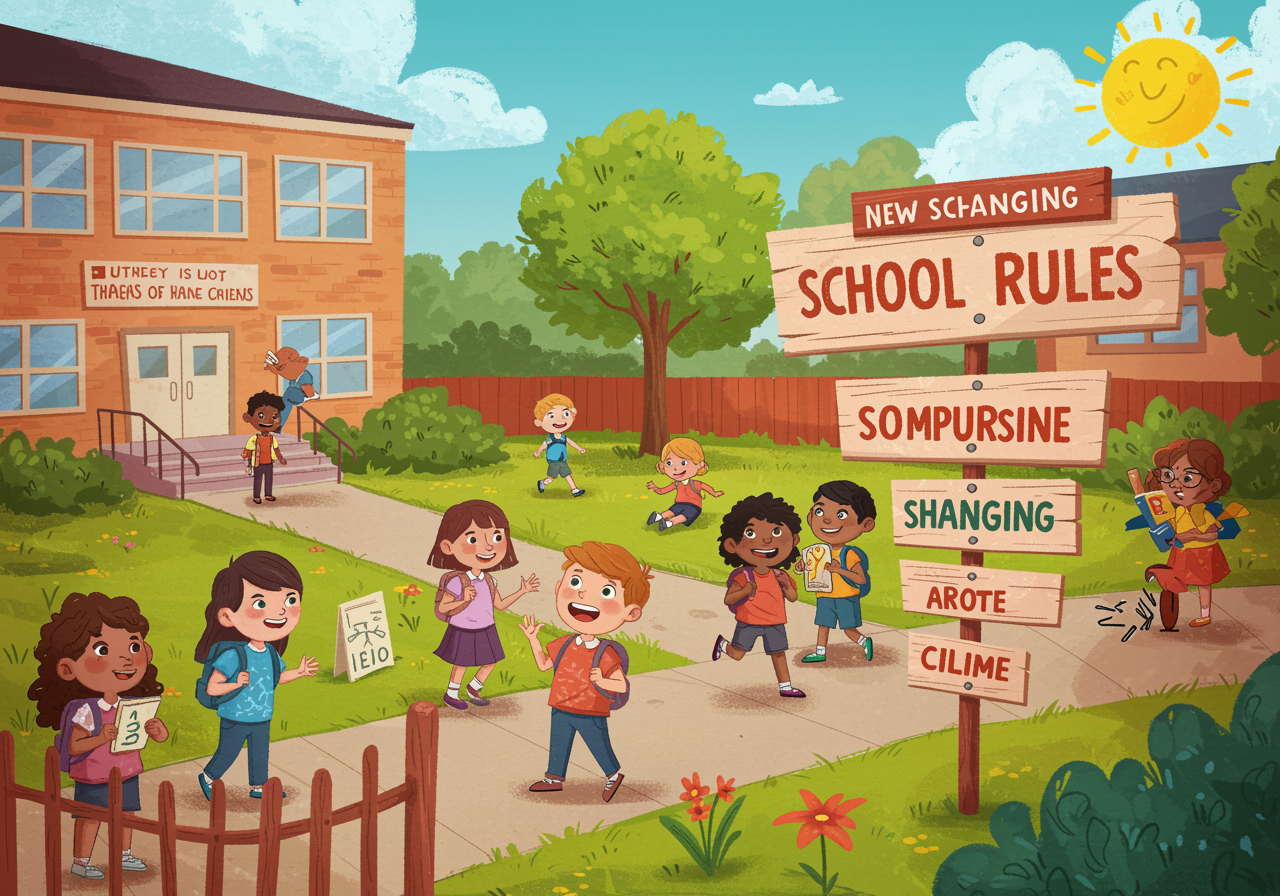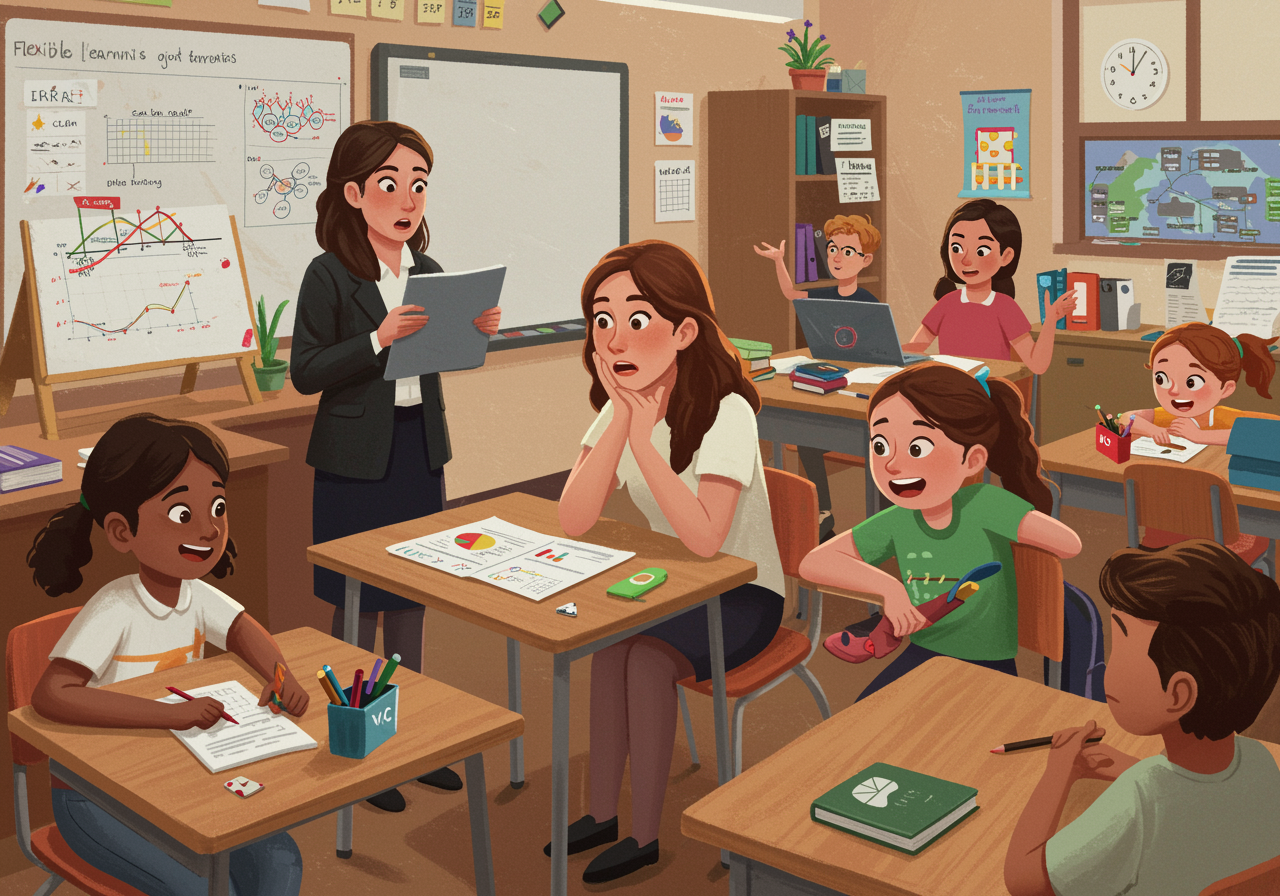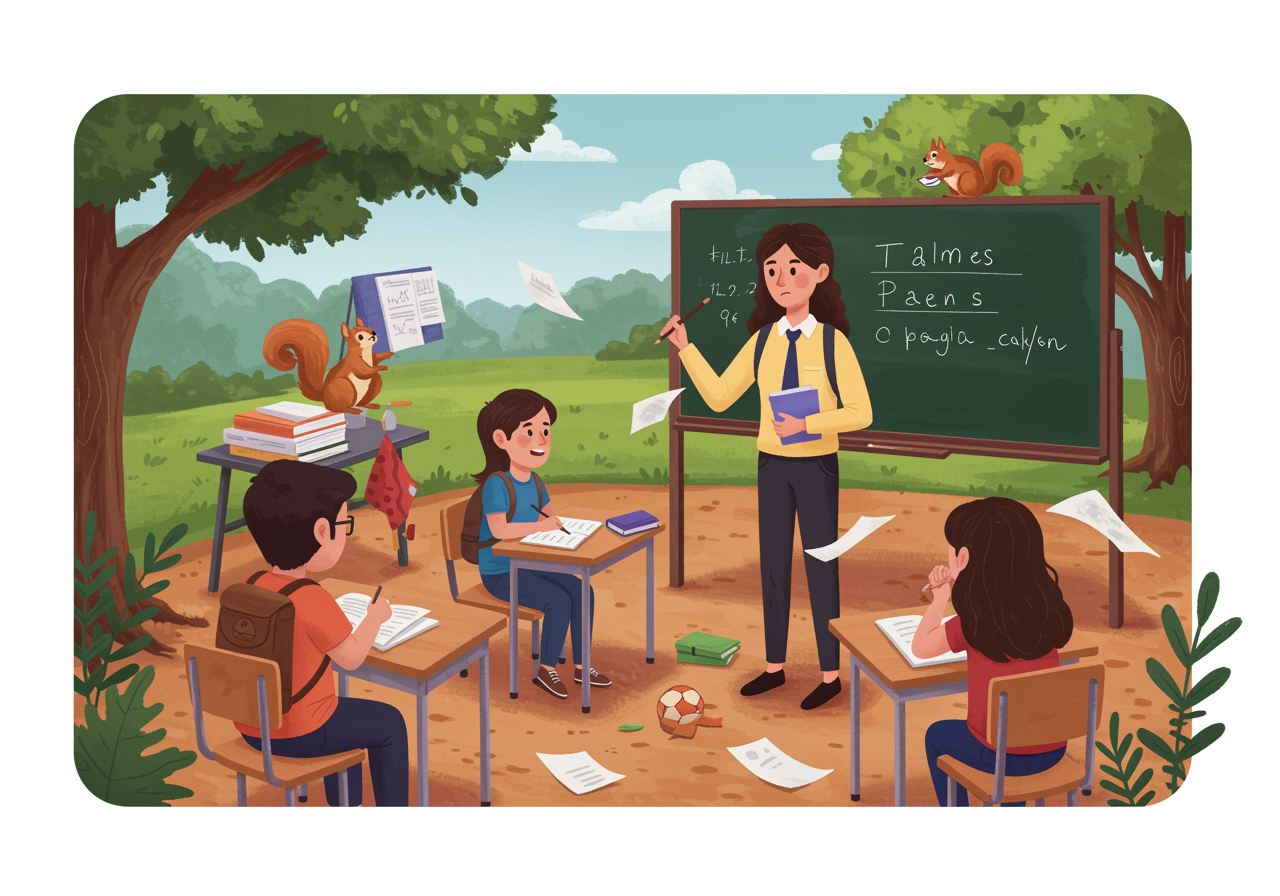Plot Twist! When School Rules Get a Major Makeover
The wild, wacky, and wonderful surprises that shake up education for everyone
Discover how new school rules create unexpected adventures, challenges, and opportunities that surprise both students and teachers in ways nobody saw coming!
Overview
Think about it – schools are like giant experiments where millions of kids and teachers are the test subjects! When new rules roll out, it's like hitting the 'shuffle' button on a playlist you thought you knew by heart. Sometimes you get an amazing new favorite song, and sometimes you wonder what just happened to your ears. These changes affect everyone from kindergarteners learning their ABCs to high school seniors cramming for finals, plus all the teachers, principals, and staff trying to figure it out alongside them. The cool part? Nobody really knows what's going to happen until it happens!

Understand in 30 Seconds
Get up to speed quickly
- Change Hits Everyone: New education rules don't just affect students – teachers, principals, and even parents get surprised by unexpected challenges and cool new opportunities.
- Technology Plot Twists: Digital tools can create amazing learning experiences, but they can also lead to hilarious tech fails and awkward moments for everyone involved.
- Hidden Benefits Pop Up: Sometimes the best parts of new rules are things nobody planned for, like students becoming tech helpers or teachers learning alongside their kids.
- Adaptation is Key: The schools that handle surprises best are the ones where everyone – students, teachers, and families – work together to solve problems creatively.
Real Life Scenario
Situations you can relate to
Imagine your school just announced that every Friday will be 'Flexible Learning Day' where students can choose their own learning path. Sounds awesome, right? But here's the plot twist – your math teacher, Ms. Rodriguez, is just as confused as you are! She's never had to plan lessons where kids might be working on completely different things at the same time. Meanwhile, some students are thriving with the freedom, others are totally overwhelmed by choices, and a few are trying to convince everyone that 'learning about video games' counts as computer science. Even the principal is scrambling to figure out if kids can eat lunch in classrooms now. What started as a simple rule change has created a whole web of unexpected situations that nobody saw coming. The surprise? By the end of the month, students are teaching teachers new ways to use technology, and teachers are showing students how to manage their time better. Everyone's learning together!

Role Play
Spark a conversation with “what if” scenarios
What if you were the principal for a day when a new 'no homework on weekends' rule was announced?
- Role play: Act out dealing with surprised teachers who don't know how to fit everything into weekdays, excited students planning their free weekends, and confused parents wondering how to help their kids stay on track.
What if your school switched to 'outdoor classrooms' and you were the teacher trying to teach algebra under a tree?
- Role play: Pretend to manage a math lesson while dealing with squirrels stealing erasers, wind blowing papers away, and students getting distracted by everything from bugs to airplanes.
What if your school introduced 'student choice seating' and you had to negotiate with classmates about the best spots?
- Role play: Role-play working out who gets the bean bags, how to share the standing desks, and what happens when everyone wants the cozy corner spot at the same time.
FAQs
Frequently asked questions people want to know
Why do schools change rules so often?
Schools change rules to improve learning, adapt to new technology, respond to student needs, or follow new research about what helps kids learn best. It's like updating an app – sometimes it's great, sometimes it needs a few more updates!
Do teachers get training for new rules?
Usually yes, but sometimes teachers are learning alongside students! They might get workshops or training, but often they're figuring out the surprises as they happen, just like everyone else.
What if students don't like the new rules?
Great schools listen to student feedback and adjust when needed. Sometimes what seems bad at first turns out to be awesome once everyone gets used to it, and sometimes rules really do need to change based on how they actually work.
Examples in the Wild
See how this works day to day
- Finland eliminated standardized testing and instead focuses on collaborative learning and student well-being, leading to unexpected improvements in creativity and student happiness. (OECD Education Reports)
- During COVID-19, schools worldwide rapidly switched to online learning, discovering that some students actually learned better at home while others struggled without in-person interaction. (UNESCO Global Education Monitoring)
- Schools implementing later start times found unexpected benefits like reduced student absences and improved athletic performance, but also challenges with bus schedules and after-school activities. (American Academy of Pediatrics)
- Many schools adopting 1:1 device programs discovered students became unofficial tech support for their teachers, flipping traditional classroom dynamics. (Education Week Technology Reports)
In Summary
What you should know before you start
- New education rules create surprises for everyone – students, teachers, parents, and administrators all experience unexpected challenges and opportunities
- Technology changes often bring the biggest plot twists, from amazing new learning tools to hilarious tech fails that everyone learns from together
- The best outcomes happen when schools stay flexible and let students and teachers work together to solve problems creatively
- What looks like a small rule change can create a ripple effect of surprises that transform how everyone thinks about learning and teaching
Pro-tip for Parents
You got this!
When your child complains about new school rules, resist the urge to immediately side with them or defend the school. Instead, ask curious questions like 'What's been the weirdest surprise about this change?' or 'How do you think your teacher is handling it?' This helps your child think critically about change and develop empathy for others who are also adapting. Remember, teachers are often just as surprised by rule changes as students are!

Keep an Eye Out For
Find these examples in everyday life
- News about schools in your area implementing new technology or learning approaches – great conversation starters about what might work or not work
- Your child's reactions to changes in their school routine – these are perfect moments to explore how adaptation and flexibility are life skills
- Stories about educational innovations from other countries or schools – fun to imagine 'what if our school tried that?'
Explore Beyond
Look up these related research topics
- How different countries approach education and what we can learn from their surprising methods
- The psychology of change – why some people love new things while others prefer routines
- The role of student voice in school decision-making and how young people can influence positive change